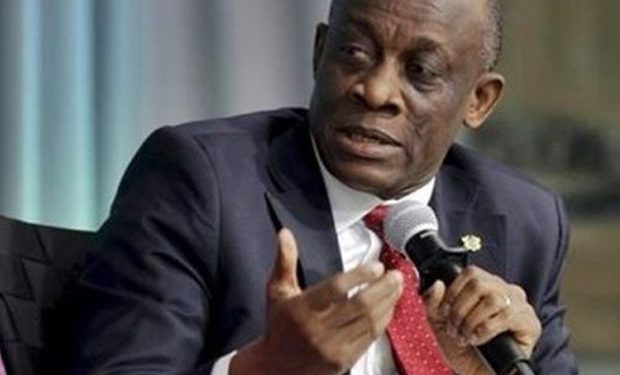Terkper highlights risks to Ghana’s economic outlook despite progress on IMF programme
Former Finance Chief Seth Terkper is cautioning the Government of Ghana against celebrating the achievement of the first phase of the International Monetary Fund (IMF) Programme. This is because he believes that there are still significant challenges within the Ghanaian economy, such as high inflation and interest rates, and that celebrating the narrowing of the primary balance by the government is not ideal.
One of his key points is that narrowing the primary balance is the least target that Ghana must achieve according to the IMF. Mr Terkper emphasizes that there are other pressing issues, including high inflation rates and increasing debt levels. He argues that these challenges need to be addressed, and the government should not become complacent.
Mr Terkper expresses concern about Ghana’s rising debt-to-GDP ratio, which has increased from 57% to close to 100%, even when taking into account contingent liabilities. He suggests that the government should focus on ensuring that the country’s debt is sustainable.
He also points to the fact that the inflation rate has crossed 40%, which has contributed to the economic challenges. He believes that it is too early for international praise, given the underlying issues in Ghana’s economy.
While the former Finance Chief acknowledges that some progress has been made in terms of foreign exchange injection and financial support from multilateral institutions during the COVID-19 pandemic, he emphasizes that there are still risks to the economic outlook.
“I am not saying there hasn’t been any success so far in terms of the injection of foreign exchange by the multilateral institutions in particular into the economy to try and stabilise the situation, particularly significant flows of COVID-19 funds. During the COVID-19 period, about ¢60 billion which is six times what we have always use to turn around the economy was injected into the economy”.
“Remember no government has done a turnaround of the economy using more than $1 billion”, he stated.
Lastly, he mentions that it will be challenging for Ghana to reduce its budget deficit to the target of 5% of GDP for Fiscal Stabilization, suggesting that achieving this goal will take time and effort.
Overall. Mr Terkper is cautioning against premature celebration of Ghana’s economic achievements, emphasizing the need to address high inflation, debt sustainability, and other pressing economic issues. He believes that there are still significant challenges to overcome.








